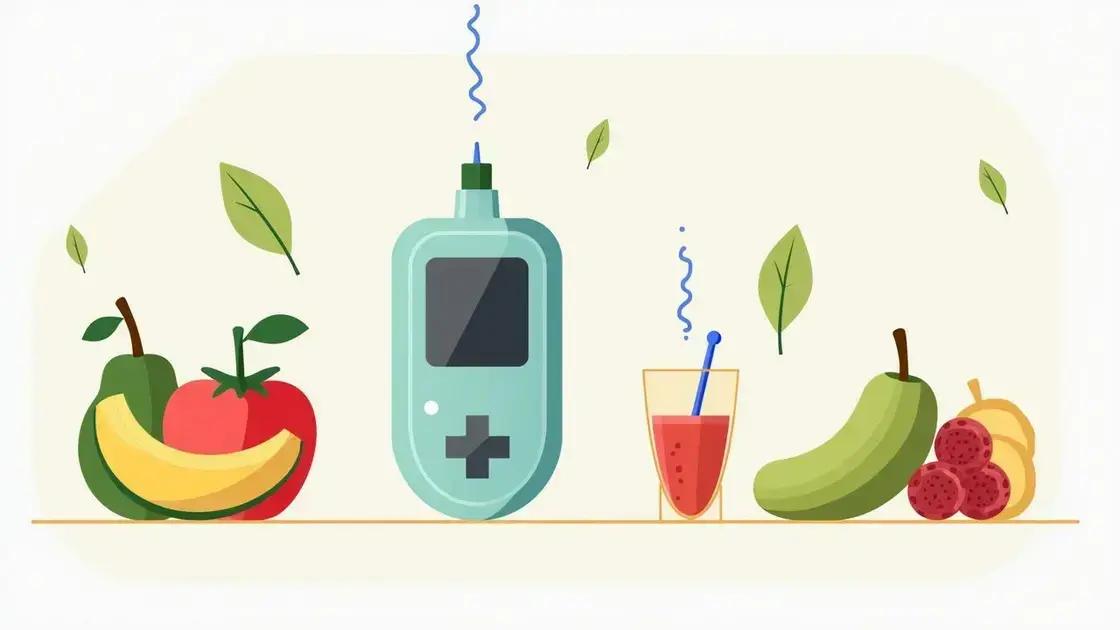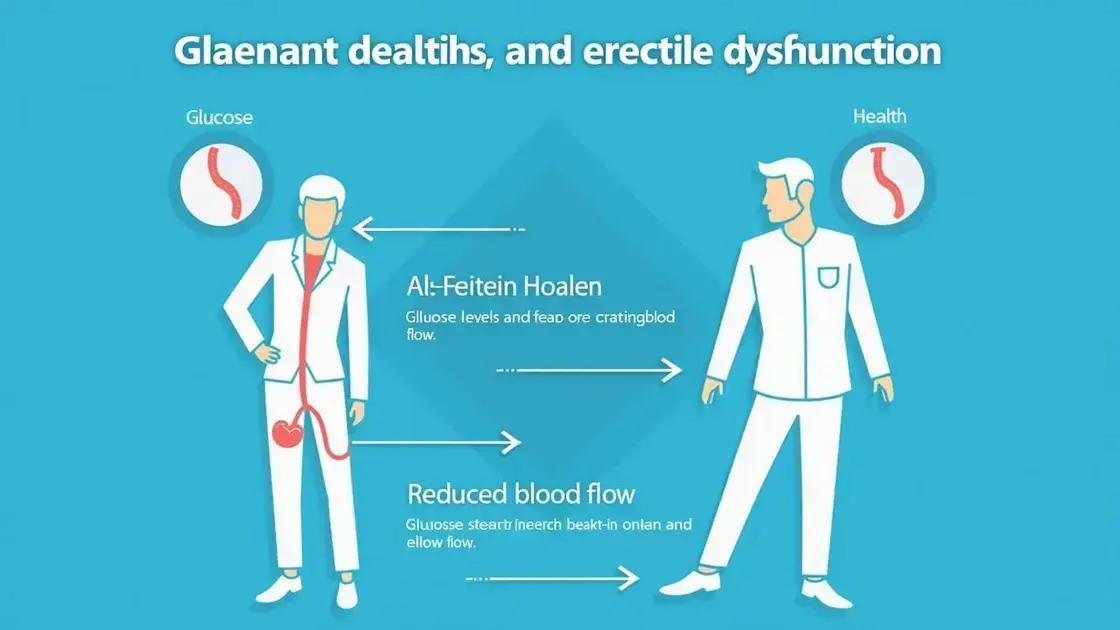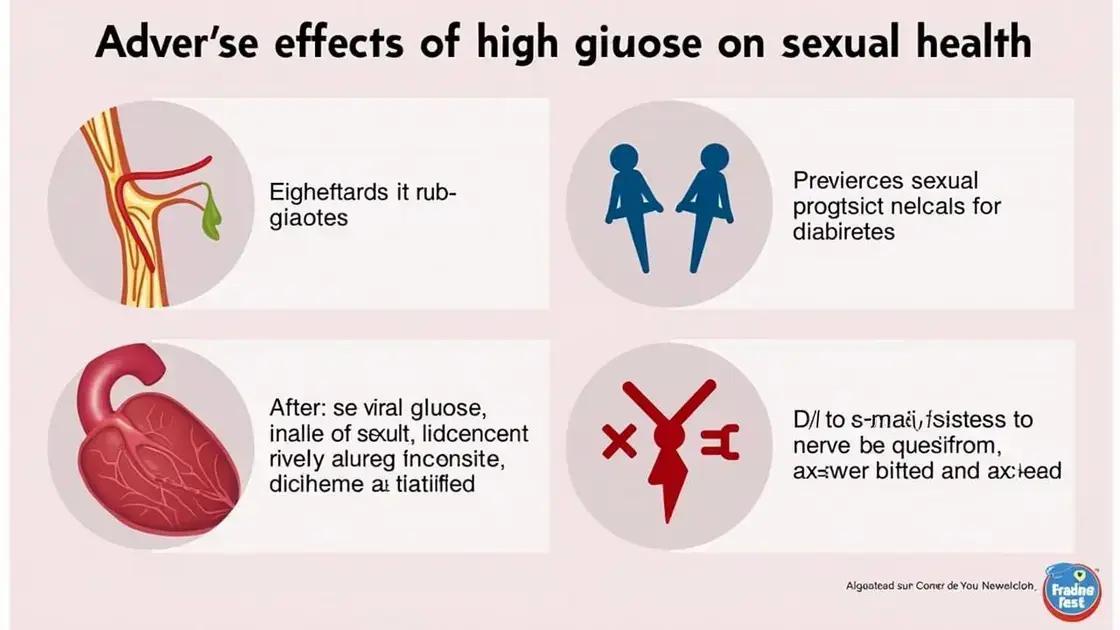Fasting glucose levels significantly impact erectile dysfunction by affecting blood flow and nerve health. High glucose can lead to ED, but lifestyle changes like a balanced diet, regular exercise, and hydration can help manage glucose levels. Consulting healthcare professionals for proper diagnosis and treatment is essential for addressing underlying health issues associated with ED.
Fasting glucose levels play a crucial role not only in overall health but also in sexual wellness. Many individuals may not realize that these levels can significantly affect erectile dysfunction (ED). In this article, we will discuss how fasting glucose influences erectile dysfunction, explore the vital link between blood sugar and sexual health, and highlight some lifestyle changes that can help manage glucose levels effectively. Understanding this connection can empower you to take proactive steps towards better health.
Understanding Fasting Glucose Levels

Fasting glucose levels refer to the amount of glucose in your bloodstream after an overnight fast. Typically, this test is done in the morning before you eat breakfast. This measure is crucial because it provides insights into how your body manages insulin and sugar, fundamental aspects influencing overall health and energy.
Normal fasting glucose levels range between 70 to 99 mg/dL. Reading over this range may signal the beginnings of insulin resistance or prediabetes, which can escalate into more severe chronic conditions if not addressed. For those managing their health, understanding glucose levels helps in identifying underlying issues.
How are Fasting Glucose Levels Measured?
Fasting glucose levels are measured using a blood test. This test often involves a simple needle stick that collects blood from a vein in your arm or a finger prick. After blood collection, the sample is analyzed in a lab to provide accurate results.
Factors Affecting Fasting Glucose Levels
Many factors can influence fasting glucose levels, including:
- Diet: What you eat and when you eat can significantly impact your glucose levels. Foods rich in carbohydrates can cause higher glucose levels.
- Exercise: Regular physical activity helps the body regulate blood sugar better.
- Stress: High stress can lead to increased glucose production in the liver.
- Medical Conditions: Certain conditions like diabetes or hormonal disorders can raise fasting glucose levels.
Monitoring these factors is essential for anyone interested in maintaining optimal health and can illustrate the connection between glucose and various health conditions, including erectile dysfunction.
The Link Between Glucose and Erectile Dysfunction

The link between glucose and erectile dysfunction (ED) is becoming clearer as research uncovers the effects of blood sugar levels on sexual health. High fasting glucose levels can lead to various health issues, including diabetes, which is known to affect blood flow and nerve function. These factors are crucial for achieving and maintaining an erection.
How does glucose impact blood flow? When glucose levels are consistently high, it can damage nerves and blood vessels over time. Poor blood circulation can restrict blood flow to the penis, making it challenging to achieve an erection. This connection highlights the importance of managing your glucose levels not just for general health but also for sexual function.
Studies on Glucose and ED
Numerous studies have shown a direct correlation between high glucose levels and erectile dysfunction. Men with diabetes are at a higher risk for ED because their bodies struggle to regulate blood sugar, leading to long-term damage. A study published in the *Journal of Sexual Medicine* found that men with higher fasting glucose levels reported more significant erectile issues than those with lower levels.
The Role of Insulin
Insulin resistance is another critical factor linking glucose to ED. When your cells do not respond to insulin effectively, your body produces more insulin to compensate. This condition can lead to fat accumulation and increased inflammation, further complicating sexual health.
Consequences of Ignoring the Link
Ignoring the connection between glucose levels and erectile dysfunction can have severe repercussions. As blood vessels become damaged, the risk of more serious health conditions, including cardiovascular disease, increases. Moreover, men experiencing ED may feel embarrassed or ashamed, potentially leading to mental health challenges such as anxiety and depression.
Effects of High Glucose on Sexual Health

High glucose levels can have significant effects on sexual health. When blood sugar spikes, it can disturb various bodily functions, including those necessary for sexual performance. One of the most common issues related to high glucose is erectile dysfunction (ED), but the impacts go further.
Damage to Blood Vessels: Prolonged high glucose can lead to damage of the blood vessels. This means that less blood reaches the penis during arousal, making it difficult to achieve or maintain an erection. Blood flow is essential for sexual function, and when impaired, it leads to frustration and anxiety.
Nerve Damage
High glucose can also cause neuropathy, which affects the nerves responsible for sexual arousal. Damage to these nerves means a reduced sensation and responsiveness, which can contribute to ED and a diminished sexual experience.
Hormonal Imbalances
High glucose levels can disrupt hormone levels, notably testosterone. Testosterone plays a vital role in men’s libido and sexual function. Low levels of this hormone can lead to reduced sexual desire, less interest in sexual activities, and difficulty with erections.
Psychological Effects
The effects of high glucose on sexual health are not just physical. They can also lead to psychological issues. Men facing erectile dysfunction because of high glucose might experience feelings of inadequacy, anxiety, and depression, which can further complicate sexual performance.
Understanding these effects is crucial for anyone with high glucose levels. Addressing glucose management can improve not just overall health but also enhance sexual well-being.
Lifestyle Changes to Manage Glucose Levels

Managing glucose levels is crucial for overall health and can significantly impact conditions like erectile dysfunction. Adopting healthy lifestyle changes is one of the most effective ways to keep glucose levels in check.
Balanced Diet
Eating a balanced diet rich in whole foods can help manage glucose levels. Focus on incorporating:
- Fruits and Vegetables: These are low in calories and high in nutrients. They can help regulate blood sugar.
- Whole Grains: Foods like brown rice, quinoa, and whole wheat bread are excellent sources of fiber that can improve glucose control.
- Lean Proteins: Include sources like chicken, turkey, fish, beans, and nuts to maintain a healthy diet.
Regular Physical Activity
Exercise plays a vital role in managing glucose levels. Engaging in regular physical activity can help improve insulin sensitivity. Aim for at least 150 minutes of moderate aerobic exercise each week, like walking, cycling, or swimming.
Weight Management
Maintaining a healthy weight is important for glucose management. Losing even a small percentage of your body weight can help lower blood glucose levels and improve insulin sensitivity.
Staying Hydrated
Drinking enough water is essential for good health. Staying hydrated helps your kidneys flush out excess sugar through urine. Aim for at least eight glasses of water a day.
Avoiding Processed Foods
Limit the intake of processed foods, sugary snacks, and beverages. These foods cause spikes in blood sugar levels and can lead to long-term health issues.
Implementing these lifestyle changes can have a big impact on managing glucose levels, thereby improving sexual health and overall well-being.
Consulting Professionals for Erectile Dysfunction

Consulting professionals for erectile dysfunction (ED) is an important step for anyone facing challenges in sexual health. Seeking help from healthcare providers can provide you with the right diagnosis and treatment options.
Why See a Professional?
ED can be a symptom of various underlying health issues such as diabetes, high blood pressure, or cardiovascular disease. A healthcare provider can conduct tests to identify these conditions and help you find an effective treatment.
Types of Professionals to Consult
There are different types of healthcare professionals who can help with ED:
- Primary Care Physician: Your first step should be to visit your regular doctor. They can evaluate your symptoms and suggest referring you to a specialist if needed.
- Urologist: Urologists specialize in male reproductive health. They can provide treatments specifically designed for erectile dysfunction.
- Endocrinologist: If your doctor suspects that hormonal issues, such as low testosterone, contribute to your ED, they may refer you to an endocrinologist.
Questions to Ask
When consulting with professionals, it’s helpful to ask the right questions, including:
- What could be causing my ED?
- What tests do I need to take?
- What treatment options are available?
Importance of Open Communication
Be honest about your symptoms and medical history. Open communication can help the healthcare provider offer the best treatment tailored to your specific needs. Remember, ED is common, and healthcare professionals are trained to handle these issues sensitively.
Understanding the Impact of Fasting Glucose Levels on Erectile Dysfunction
Fasting glucose levels significantly affect sexual health and can lead to conditions like erectile dysfunction. Recognizing the importance of maintaining healthy glucose levels through lifestyle changes—such as a balanced diet, regular exercise, and hydration—can help mitigate these effects.
Moreover, consulting healthcare professionals is crucial for appropriate diagnosis and effective treatment. Early intervention can alleviate not only the physical aspects of erectile dysfunction but also the emotional impact it may have.
By prioritizing glucose management and seeking professional guidance, individuals can improve their overall health and enhance their sexual well-being.
FAQ – Frequently Asked Questions About Fasting Glucose Levels and Erectile Dysfunction
How do fasting glucose levels affect erectile dysfunction?
High fasting glucose levels can damage blood vessels and nerves, making it difficult to achieve or maintain an erection.
What lifestyle changes can help manage glucose levels?
Eating a balanced diet, exercising regularly, staying hydrated, and avoiding processed foods can help regulate glucose levels.
When should I consult a professional about erectile dysfunction?
You should consult a professional if you experience ongoing issues with erectile dysfunction, as it may be a sign of underlying health conditions.
What types of healthcare professionals can help with erectile dysfunction?
Primary care physicians, urologists, and endocrinologists are all professionals who can provide assistance and treatment for erectile dysfunction.
What tests might be needed to assess erectile dysfunction?
Doctors may conduct physical exams, blood tests, and other assessments to determine the cause of erectile dysfunction.
Is erectile dysfunction a common issue?
Yes, erectile dysfunction is a common condition that affects many men at some point in their lives.













